
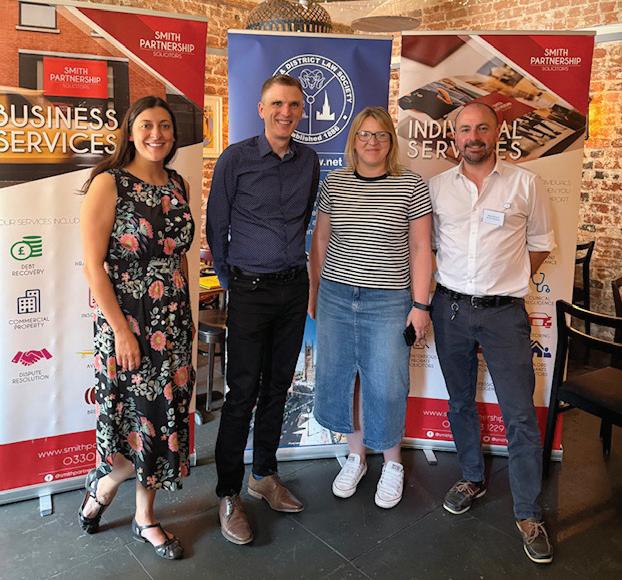

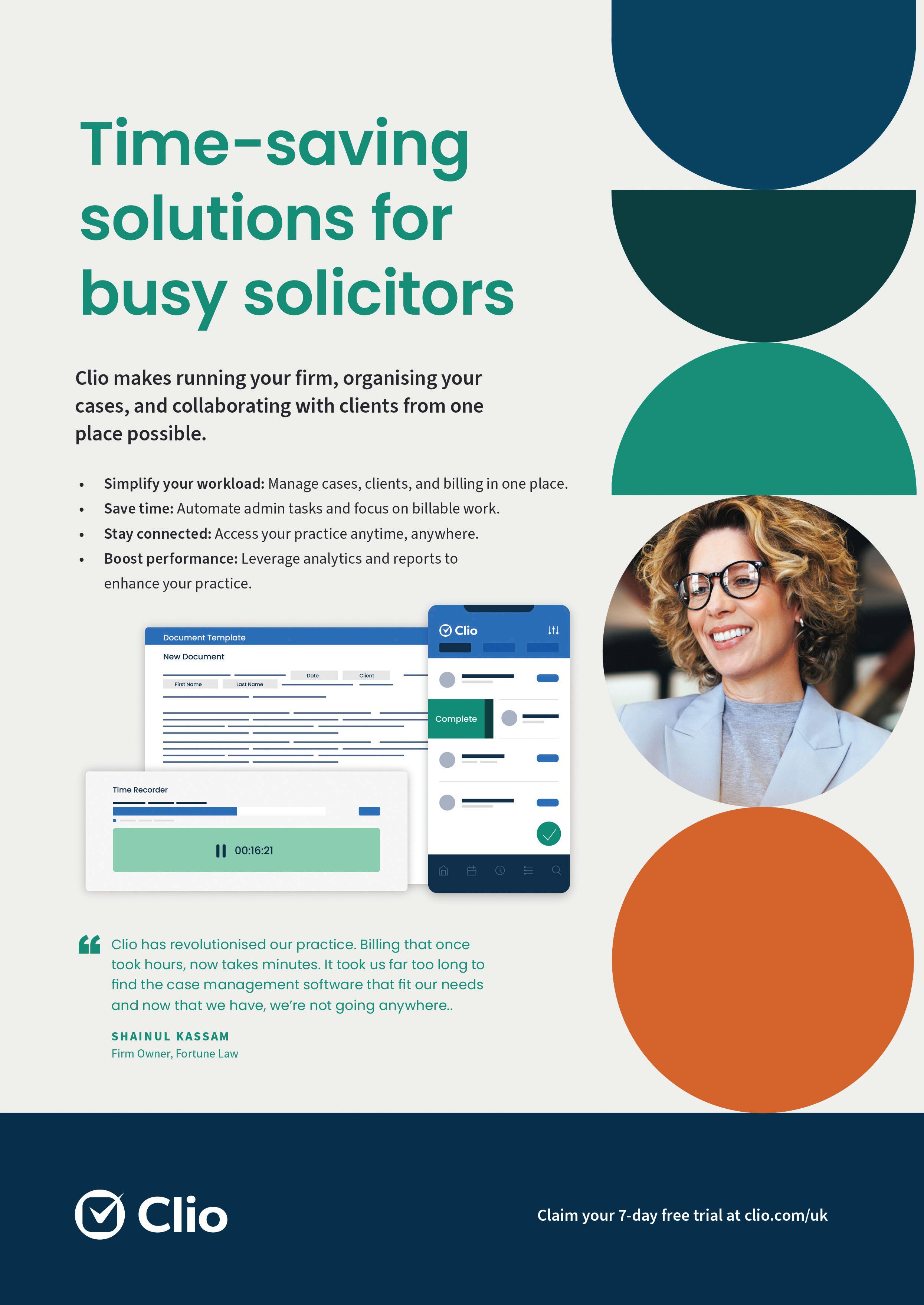






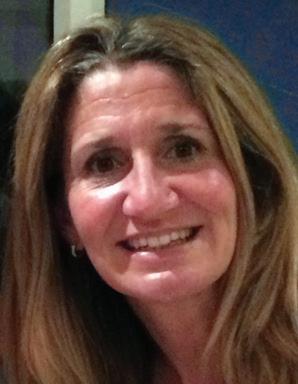
This is historically the time of year that DDLS goes quiet for the summer, so it is fantastic to be able to bring you such a packed edition of the Bulletin. The variety of events that we organise is great to see and I am pleased to say that planning for the Autumn is in full swing with the next Tapas Thursday, several educational courses for various areas of law, more unusual networking events, a charity bake off, a cricket match or two and a Winter Party which DJL have already booked at the Farmhouse Mackworth on Friday 28th November so please save the date.
On the note of DJL congratulations to Amelia Sutcliffe who has taken over as Derby Junior Lawyers President, George Ottewell who
becomes VP and Katie Morris who has stepped into the role of DVP. Well done everyone and I look forward to working with you. A huge thank you to Laura Matthews, outgoing President, for all her hard work in re-establishing DJL and making it into the successful and well regarded organisation that it is today.
Thank you to all the firms who have renewed their membership of DDLS. I will be sending a final reminder at the end of July. I anticipate that all member firms will then have renewed. I am very pleased to welcome KCH Garden Square Chambers from Nottingham who have officially become out first barristers chambers to join DDLS as a set. We look forward to meeting you soon.
If anyone interested in joining the main committee or various sub-committees, please contact me or the secretaries of the sub-committees directly. Their details are
on page 4 of the Bulletin. In a further attempt to show members the diversity of our main committee Lucy, this year’s President, has been interviewing committee members. I will be including a few of those interviews in each Bulletin through the year – see page 8.
We are always on the lookout for potential sponsors for our events so if you have any contacts who would be interested in sponsoring an event or becoming a patron of DDLS, please let me have their details or get them to e-mail me direct. Tapas Thursday on 25th September at Lorentes Darley Abbey is currently still available to sponsor.
I hope to see you at an event soon. Take care.
Officers
President*
Lucy Tissington lucy.tissington@familylawgroup. co.uk
Immediate Past President*
Tina Attenborough Attenborough Law, Derby Tel: 01332 558508 tina@ attenboroughlaw.co.uk
Vice-President* Rachel Maxwell Rachel.maxwell@smithpartnership. co.uk
Deputy Vice-President* Debra Morris debra@affinitylaw.co.uk
Honorary Secretary*
Fiona Apthorpe Geldards LLP, Derby Tel: 01332 378335 Fiona.Apthorpe@geldards.com
(* = Ex-Officio)
Public Relations Officer (+) Vacant
Derby Junior Lawyers
President Amelia Sutcliffe amelia.sutcliffe@ smithpartnership. co.uk
Vice-President George Ottewell George.Ottewell@flintbishop.co.uk
Deputy Vice-President Katie Morris katie@affinitylaw.co.uk
Constituency Council Representative, Derbyshire (+) Shama Gupta shama.gupta@freeths.co.uk
(+) attend Committee by invitation
Other Committee Members
Julie Skill, Elliot Mather LLP Chesterfield Tel: 01246 231288; julie.skill@elliotmather.co.uk
Felicity Coats felicity.coats@elliotmather.co.uk
Diana Copestake dianaohalloran@aol.com
David Hardy Tel: 01332 842008
david.hardy1630@gmail.com
Oliver Maxwell
Smith Partnership Oliver.Maxwell@smithpartnership. co.uk
Martin Salt martins@simpsonjones.co.uk Tel: 01332 200200
Claire Twells claire.twells@smithpartnership. co.uk
Sue Jennings sue.jennings@geldards.com
Treasurer*
Ben Lawson
Elliot Mather LLP Tel: 01246 231288 ben.lawson@elliotmather.co.uk
Claire Rudkin
Flint Bishop, Derby Tel: 01332 340211 claire.rudkin@flintbishop.co.uk
Manesha Ruparel MR@AandCo.co.uk
John Ellis
John.ellis@smithpartnership.co.uk
Administrator / Bulletin Editor
Julia Saunders, Email: admin@derbylaw.net
Sub-Committees (Secretary in italics)
Criminal Litigation
Andy Cash
Felicity Coats felicity.coats@elliotmather.co.uk
Andrew Oldroyd (01332 225225)
Education & Training
Sue Jennings, & all Sub-Committee Secretaries
Employment and Business Law
Sue Jennings
Tina Attenborough tina@attenboroughlaw.co.uk
Equality, Diversity and Inclusion Manesha Ruparel mr@aandco.co.uk
Tina Attenborough tina@attenboroughlaw.co.uk
Sue Jennings sue.jennings@geldards.com
Family Law FionaApthorpe
David Guthrie dg@aflp.co.uk
Fiona Apthorpe Fiona.Apthorpe@geldards.com
Fiona Lazenby fiona.lazenby@knightsplc.com
Julie Skill Julie.Skill@elliotmather.co.uk
Kelly Mower kellym@eglegal.co.uk
Liz Guyler lizguyler@eglegal.co.uk
Lucy Tissington lucy.tissington@familylawgroup. co.uk
Manesha Ruparel MR@AandCo.co.uk
Melanie Bridgen melanie.bridgen@nelsonslaw. co.uk
Natalie Haydon-Yeung Natalie.Haydon-Yeung@geldards. com
Nick Herbert nh@aflp.co.uk
Ruth Jones ruth.jones@smithpartnership. co.uk
Sole Practitioners’ Group (SPG) Tina Attenborough tina@attenboroughlaw.co.uk
Last updated 16.07.25
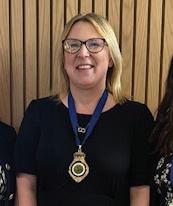
Welcome.
I have really enjoyed the last couple of months as President.
The first event I attended was the Derby Legal Walk. This was a huge success. The event raised £430 and this money goes to support the Access to Justice Foundation. This will allow funding for free legal advice where it is most needed, AJTF work to increase resources and provide free legal advice across the UK, providing grants to support marginalised communities and protect their fundamental rights to live fulfilling lives. So many firms attended, there were friends, family, a lovely dog and my Dad even came along and had a great time.
I then attended the Leicester Law Society Awards Dinner. This was a spectacular event and it was wonderful to see Greg Hollingsworth in his element. He looked so happy hosting the dinner. It gave me lots of great ideas. The nominees and the winners deserve huge praise and I loved meeting the wonderful people on my table.
Then we had our Tapas Thursday event on 19 June. I had to try and combine
two events as my son was in a choir concert in Nottingham. I successfully managed this. This event, sponsored by Smiths, was great as always. Amazing food and company and we had such positive feedback about the event. This is one not to be missed. The next Tapas Thursday will be 25 September. Please let us know if you would like to attend and if you would like to perhaps sponsor the event. Mark Saxby was at this event to tell people about Positive Social and as always people were so impressed with the charity and wanted to know more. I want to be able to raise both awareness and as much money as possible for this important charity.
I am actually really enjoying organising the Family and Friends fun day. This is an event hosted by DDLS and will be held at Derby Rugby Club on 20 July from 12pm to 3pm. This is sponsored by Carter Brown who are a huge positive team to work with and Greg Gillespie of Legal Connect who is another huge supporter of DDLS and all round nice man.
I am really excited to say that we now have an education committee set up. We have 10 people already attending the committee meeting so please let me know if you would like to attend. This is to discuss all things SQE, LPC, apprenticeships, training and development and it seems to be a really positive group of people.
Henna Aiten is working hard with Manesha Ruparel on the EDI event on 18 September and she will be able to explain more soon. This will be a great panel event to champion EDI and gather together to discuss what is important. More info on these to follow.
We received a lovely comment from the communication officer at the National Law Society. He said he is really impressed with DDLS and said he wished that all
national visits had such an impact and he is so pleased with the work we are doing following the national Law Society visit.
I have two courses set up for 9 October with Northampton Chambers. This event and food are kindly sponsored by DNA legal. Then on 13 November a course with Barristers from St Mary’s Chambers has been organised. This event and food will be sponsored by Carter Brown. I am looking forward to these already.
We had a successful and enjoyable family law committee meeting, and we have a number of other meetings set up. This allows us to share ideas and suggestions in terms of the work we do. Anybody else who would like to join the family law committee please let me know. This is chaired by Fiona Apthorpe and the committee has a relaxed feel to it.
Really looking forward to the Derby Junior Lawyers event on Friday at the Kedleston Hotel. This is their Summer Soiree and it is set to be a great event. They all work so hard and their hard work will be rewarded on Friday with a great event.
The last two months have flown by, and the role does keep me busy. Speaking with possible sponsors, trying to organise events and asking Julia a million and one questions. She is always there with a helpful answer and some top tips. Also great to be working with Rachel , Debra , and Tina to focus all the ideas. I would love some new firms to join DDLS and I know a few of the committee have been inviting people along. We have Nosheen joining the committee today and we also have great news that KCH Garden Square barristers have joined DDLS.
I am excited for the next couple of months.
Lucy Tissington President,
2025-26

Axiom Ince update
The Legal Services Board (LSB) issued binding directions against the SRA after the £60m client money loss at Axiom Ince. TLS said “The directions reflect the unanimous feedback from those consulted, that the next steps must be clear, measurable and proportionate. The decision by the LSB strikes the right balance between ensuring strong consumer protection while avoiding unnecessary regulatory burdens. The clear timelines and oversight framework will help ensure good progress is made towards restoring consumer trust and confidence in the regulator. As the LSB’s decision recognises, the Law Society had no direct connection to, nor involvement in, the events examined in the independent review of the SRA’s intervention into Axiom Ince.”
Further reading: https://www.lawsociety.org.uk/contact-or-visit-us/press-office/press-releases/law-societyresponse-to-lsb-actions-against-the-sra-following-axiom-ince
To subscribe to TLS press releases on key topics and consultations, contact TLS Press office contact: Nick Mayo | 020 8049 4100.
Climate change and property
TLS practice note has been updated to include practical guidance to help address common challenges identified by solicitors.
Further reading: Climate change and property | The Law Society supplementary technical note on physical climate risk (PDF 266 KB).
https://prdsitecore93.azureedge.net/-/media/files/topics/climate-change/law-society-climate-risk-and-property-supplementary-technicalnote---may-2025.pdf?rev=f78d482860a04b15b2afb06bd0885eee&hash=5667A1CA0059B5892743697C56EDEEAA
TLS response to the LSB’s proposed ethics policy
The LSB propose to issue a statutory statement of policy, seeking to reshape how regulators and legal sectors interpret and uphold professional ethics. TLS states that the scope and tone of the consultation risks overstating the systemic nature of the issues and undervaluing the current regulatory mechanisms overseen by the SRA.
Further reading: Legal Services Board consultation on upholding professional ethics – Law Society response | The Law Society https://www.lawsociety.org.uk/campaigns/consultation-responses/legal-services-board-upholding-professional-ethics
In-house ethics framework | The Law Society https://www.lawsociety.org.uk/topics/in-house/in-house-ethics-framework/
SRA first-tier complaints consultation
The SRA is seeking views on its proposals to make changes including when complaints information must be provided to a client, collecting and publishing additional complaints data and co-development of a model complaints resolution procedure.
Further reading: SRA | Consultation - Changing our requirements on first-tier complaints | Solicitors Regulation Authority https://www.sra.org.uk/sra/consultations/consultation-listing/requirements-ftc/
To subscribe to SRA consultations, select SRA | Consultation alerts | Solicitors Regulation Authority https://www.sra.org.uk/sra/consultations/consultation-alerts/
TLS welcomes feedback from you and I would like to hear from you about anything you may wish to share concerning your professional needs.
Schedule a 1:1 conversation online by contacting me at https://www.lawsociety.org.uk/about-us/our-governance/councilconstituencies-and-current-members/shama-gupta.
Don’t forget to update your personal information on My LS!
Shama Gupta
The Law Society (TLS) Council Member


MANESHA RUPAREL
1. Why did you want a career in the law? I have always been very interested in the law, I was about 11 years old when I was keen on the subject. I admired lawyers and Law seemed like a great way to spend the rest of my working life – I loved solving problems and helping others. I did have a slight interest in something completely different – Dentistry, I carried out work experience when I was 15, to satisfy my curiosity, after a week at a dental surgery, I knew pursuing a career in Law was for me and not looking into people’s mouths on a daily basis!
2. Why did you join the committee? I was invited to join the committee on 2008. I was keen to network, serve the society, stay in “the know” and encourage junior members in their career paths ( not in any particular order)!
3. What is your favourite DDLS memory? Feeling and seeing a positive energy amongst those that attended the DDLS dinner during my presidential year. I have enjoyed all the DDLS dinners and social events set by the society, it is great to spend time with fellow members of the profession at various events, particularly since covid days!
4. What would you say to anybody thinking about joining the DDLS/DJL committee or a sub-committee?
No doubt at all - join us, we are a friendly committee with a forward thinking positive outlook. If you join, you will help shape the future of our society and enjoy the connections made. It is mutually beneficial for you, our society and generations ahead of us!
AMELIA SUTCLIFFE
1. Why did you want a career in the law? The honest answer is, I read it in the yellow pages and thought ‘love an argument, wouldn’t mind being paid well to do it too’. That was enough drive to see me through my a-levels and both my undergraduate and masters. As I progressed through my career, the reason behind it all started to change. I began to appreciate the gravity of the reputation of the profession. It’s not just a job, or career,

it’s a profession. Whilst also really getting to understand the role of a lawyer – to help people when they need it.
It’s a rare to be in a job that’s not medical, but where you can still make a substantial difference to people’s lives, but I feel law fits perfectly into that. Whatever sector you’re in; it’s making a difference to peoples lives. Whether that’s helping their business, representing them in family/criminal proceedings, or getting justice for a victim of medical negligence, it all comes down to the principle of helping someone when they need it, and for me, this will always be the reason I wanted this career.
2. Why did you join the committee? I joined the DJL committee in 2023 after attending a few events. I wanted to be a part of the movement towards re-building lawyerto-lawyer networking following the pandemic. Having been a member attending events, I already appreciated the value of lawyerto-lawyer networking and wanted others to experience that, too.
From a career development point of view, joining the committee has helped me massively to broaden my own network and be exposed to some brilliant opportunities.
3. What is your favourite DDLS memory?
I would say my favourite DDLS memories are always linked to the annual awards night. In 2024, I was delighted to win the Trainee Solicitor of the Year award, which remain a high memory for me. This year’s awards night ended with a group of us on the dance floor for hours. The atmosphere was electric, and everyone let their hair down and had a great time. For me, it was a moment of pride to look around at everyone enjoying themselves and know the work that is put in to get to that stage.
4. What would you say to anybody thinking about joining the DDLS/DJL committee or a sub-committee?
Just come to an event with an open mind and try it. If you’re nervous, just reach out to either

committee and they’ll always ensure you’re supported. Don’t underestimate the value of the connections you can make through the DDLS/DJL.
DAVID HARDY
1. Why did you want a career in the law? When I was around 14 years the brother of my best friend got a job at a local legal firm and regaled us with all sorts of fascinating tales of what went on there. This sparked my interest in becoming a lawyer which I then decided to pursue.
2. Why did you join the committee? I was invited to join and decided I anted to contribute to the advancement of the profession both locally and nationally. Being able to find out the local gossip was certainly a bonus !
3. What is your favourite DDLS memory? I had a great time at my President’s Dinner. I had to give my speech in front of 450 guests which was terrifying but also very stimulating. Also, I had to give a speech on behalf of the Society to the National Conference in Cardiff which I really enjoyed. But most of all it has been the friendship and my admiration of my fellow committee members which has trumped everything. Their dedication has been fantastic, and I have been in awe of their passion and commitment.
4. What would you say to anybody thinking about joining the DDLS/DJL committee or a sub-committee?
Your voice will be listened to and taken on board. You will be very warmly welcomed. The Committee is inclusive, enthusiastic, positive, progressive and active. It makes a real contribution to the local profession and community. Our Young Lawyers section is excellent and always coming up with exciting ideas.
David Hardy is a retired solicitor and was President of DDLS in 1997/98 – he has remained an active committee member since then.

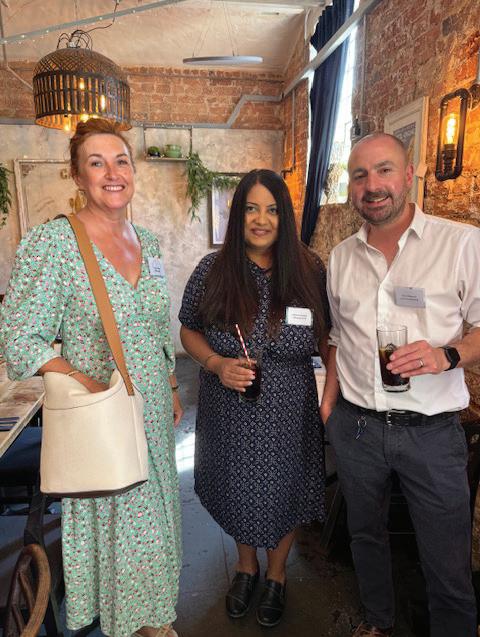
Our ever popular Tapas Thursday lunch returned on 19th June. We are grateful to Smith Partnership who sponsored this event and to our VP Rachel Maxwell and past president Oliver Maxwell from Smiths who hosted the lunch whilst President Lucy sent a welcome video and was still able to join in the socialising part way through the fabulous tapas meal.

We heard from Mark Saxby about his work with Positive Social which is the President’s Charity this year. The charity provides sessions (in person and remotely) in schools and to parents and pupils to help young people take back their lives from social media. He has some sobering statistics about how many hours young people spend on their phones. There is more information about the charity elsewhere in this Bulletin.
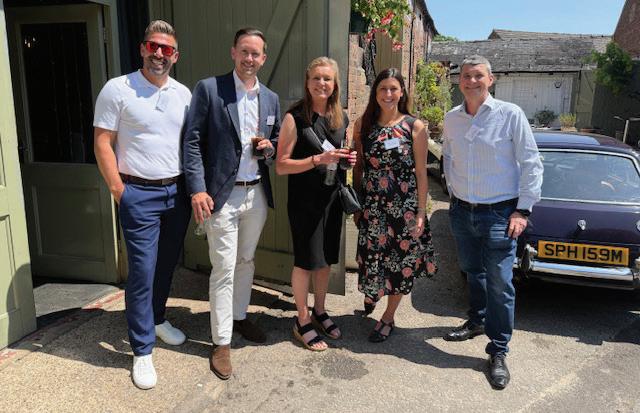

Tapas Thursday usually attracts about 30 lawyers and local business people and is a small enough event that you can chat to everyone and large enough to be worthwhile. All this and great food. One first time guest said
“I enjoyed Tapas Thursday – what a lovely and interesting group of people. I had some fascinating conversations, and it was a real pleasure to connect.”
Our next Tapas Thursday is 25th September. Please get in touch if you are interested in coming along or indeed sponsoring.
Julia Saunders admin@derbylaw.net
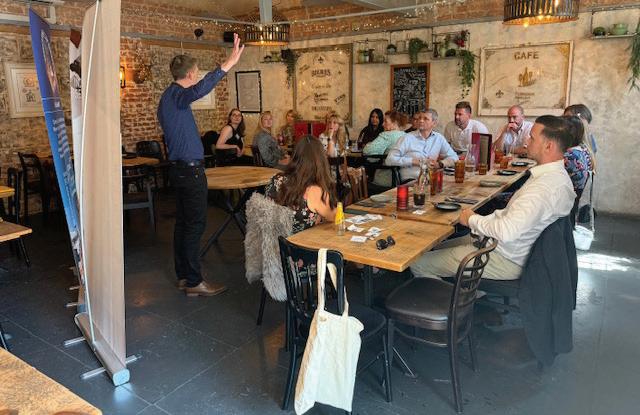
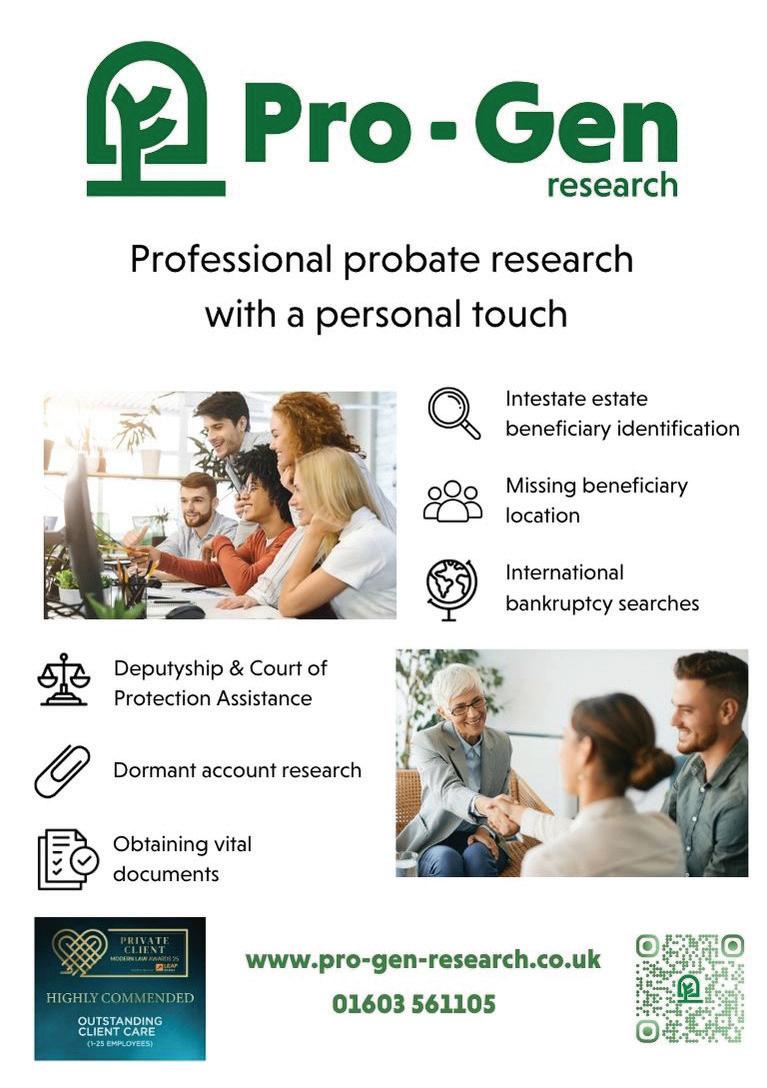


Fourteen-year-old Kayla from Derby spent around 60 hours a week on her phone before deciding it was time for drastic action.
She was being regularly bullied about her weight on Snapchat, so she made a radical decision –she closed her account.
Her life has been transformed. This is how she describes it:
• I don’t have people messaging me 24/7.
• I don’t have to constantly check my phone.
• I don’t have to see everyone’s life.
• I don’t have to feel a certain way to fit in.
It’s not only Kayla’s life that has been changed. Her family has got her back. Her mum, Amy, says her daughter now spends time with the family in the living room rather than eating her tea and disappearing to her room.
How do we help our children handle social media better? Through education – that’s how. My wife and I set up the Derby-based national

charity, Positive Social, after seeing the negative effect social media platforms were having on children.
We realised that social media was here to stay and there was no point telling young people they should stay off it. For starters, we created one of the UK’s first specialist social media consultancies!
No, the answer was to show children there is another way of handling social media – where they are in control and not the social networks. So we started running sessions in schools which are broken down into three key areas:
1) Are they using social media appropriately?
2) The power of social media on their brains.
3) Are they living their best lives?
The sessions conclude with the students making commitments to change. Powerful commitments such as:
“I’m going to leave WhatsApp groups where I’m bullying other kids.”
“I’m leaving Instagram because it makes me feel sad.”
“I’m going to spend more time with my little
The D&DLS Family Committee met on 12 June.
brother rather than being on my phone.”
“I’m no longer going to take my phone to bed with me.”
Finally, they’ve been given permission to live life differently – and they are quick to embrace it.
Of course, not every child will. But they’ll never forget our sessions. Fun, dynamic and thoughtprovoking – they’re unforgettable. Which is why schools invite us back year after year.
We encourage schools to follow up our sessions by setting up Social Ambassadors – groups of children who meet monthly to discuss what’s happening on social media.
So far, 13,000 children have taken part in our sessions. Hundreds of parents have also attended parent-focused sessions, designed to help them support their children on the social media journey.
We have more than 30 deliverers across the UK with more people joining us regularly.
Social media is a part of our lives. It’s a great tool for planning days out; wonderful for staying in contact with friends; helpful when it comes to building communities and for commerce. But we need to be in control of social media and not let it control us.
If we want our children to make wise choices, we need to show them what choices they can make.
Mark Saxby Co-founder of Positive Social
We discussed at some length the issues with regards to court listing and the shortage locally of financial remedy judges. Happily, we are told, that Raffia Arshad will be returning to work later this year which is great news.
Nationally the family courts in Derby are performing exceedingly well in respect of children cases due to HHJ Williscroft’s leadership and some incredibly hard work from the judges and staff.
We have been told that the Advice Clinic at Derby University has now been renamed the Community Legal Advice Service.
On the news front, St Ives Chambers have moved into Nottingham and are keen to make their presence felt.
Fiona M. K. Apthorpe (Secretary)
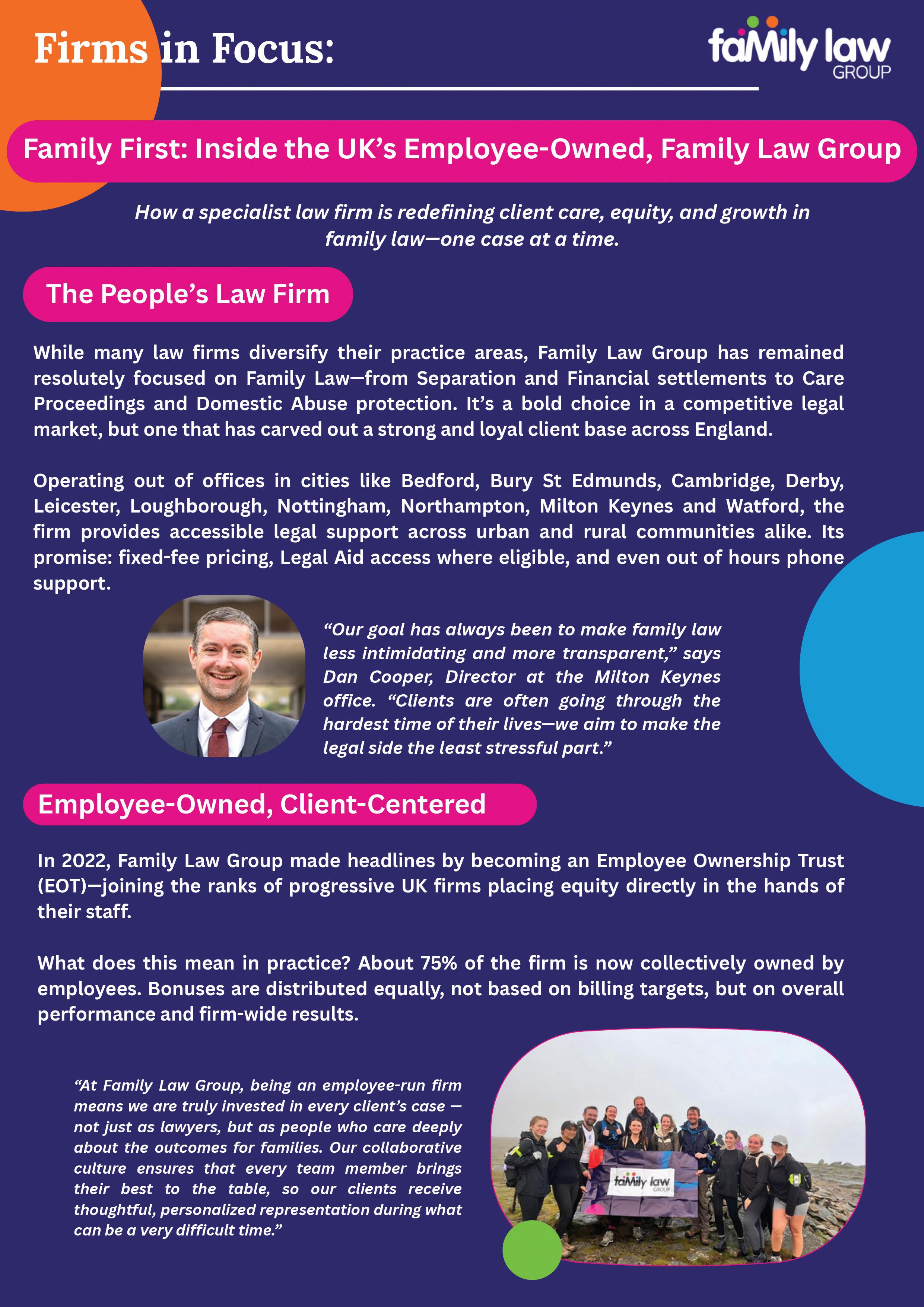

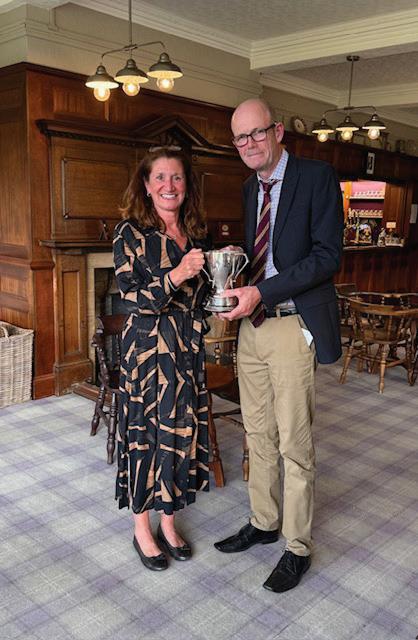
A return to the challenging course at Hollinwell this year. Again all three professions were represented. This year we lawyers gave the medics and clerics a good run for their money but sadly the result was medics victorious on 3 points, lawyers 2.5 points and clerics 0.5 points. A great and social afternoon of golf was followed by a fabulous meal.
Well done and thank you to all the lawyers ( Jason Skelton , Adam Hollis , David

Hardy , Stuart Taphouse , Rod Sinclair , Andy Rudkin and Jonathan Taaffe and honorary lawyers Grant Redfern and Ian Williams ) medics and clerics who took part. Particular thanks to my playing partner Jason and very pleased to say that we won our match 5 and 4 and I even managed a birdie on 10. Mind you I felt like we had played about 54 holes by the time we finished as the course is so long! Thank you to Hollinwell Golf Club for hosting.
Thanks to Adam Hollis we have already set the date for next year’s Coleman Cup which will take place on Thursday 14th May 2026 at Matlock Golf Club. Note your diaries and anyone interested in playing please get in touch.
Julia Saunders admin@derbylaw.net

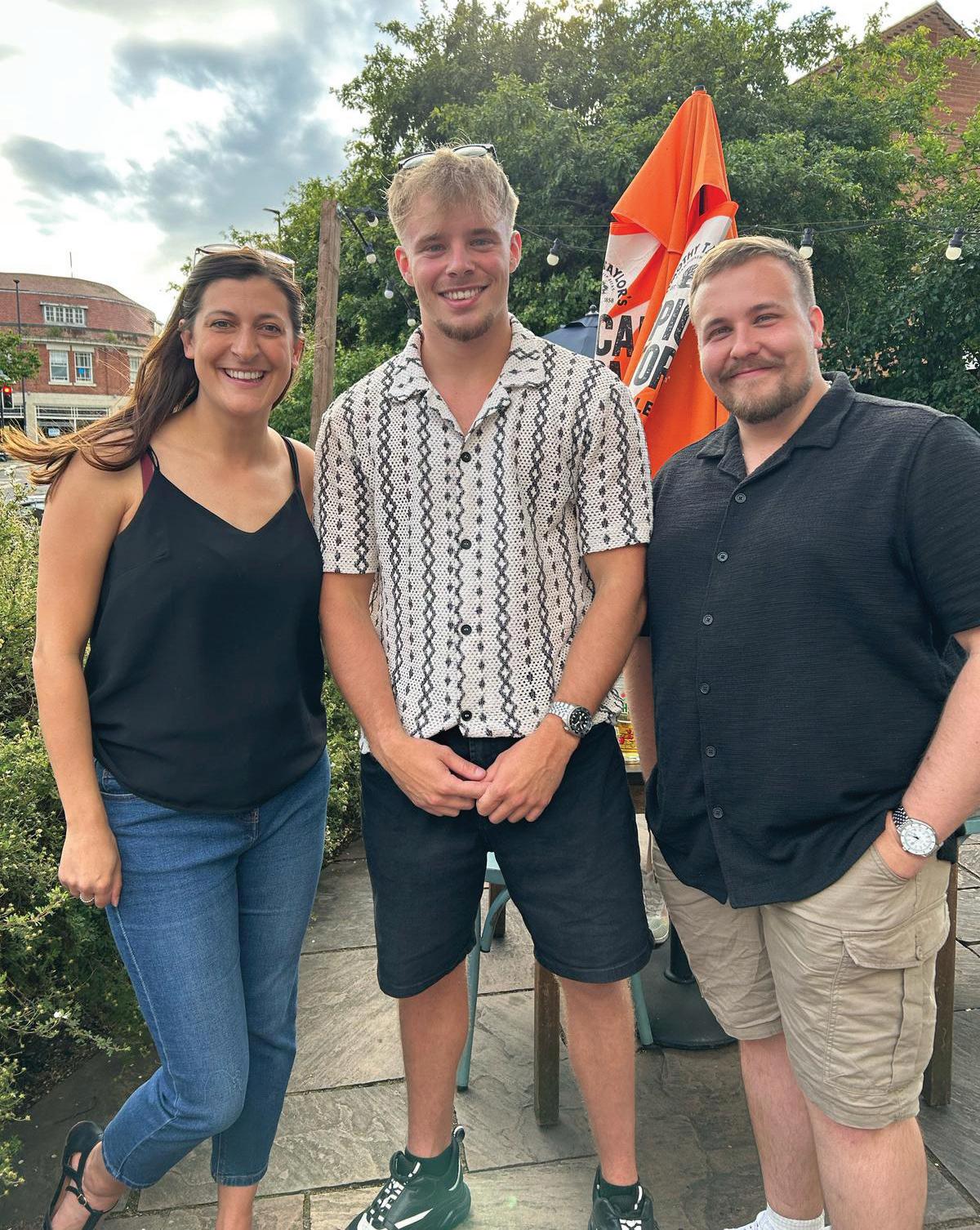
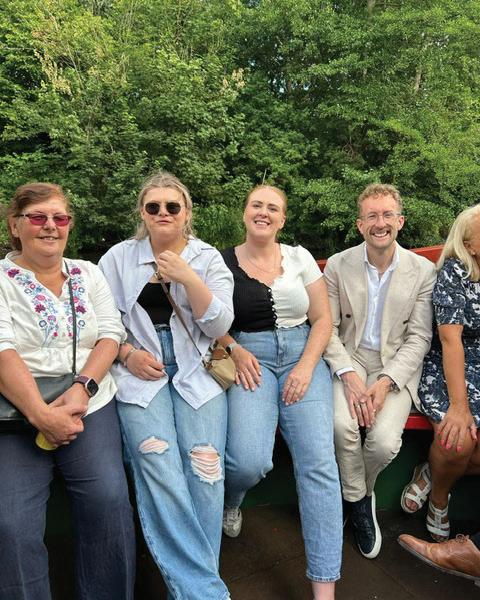
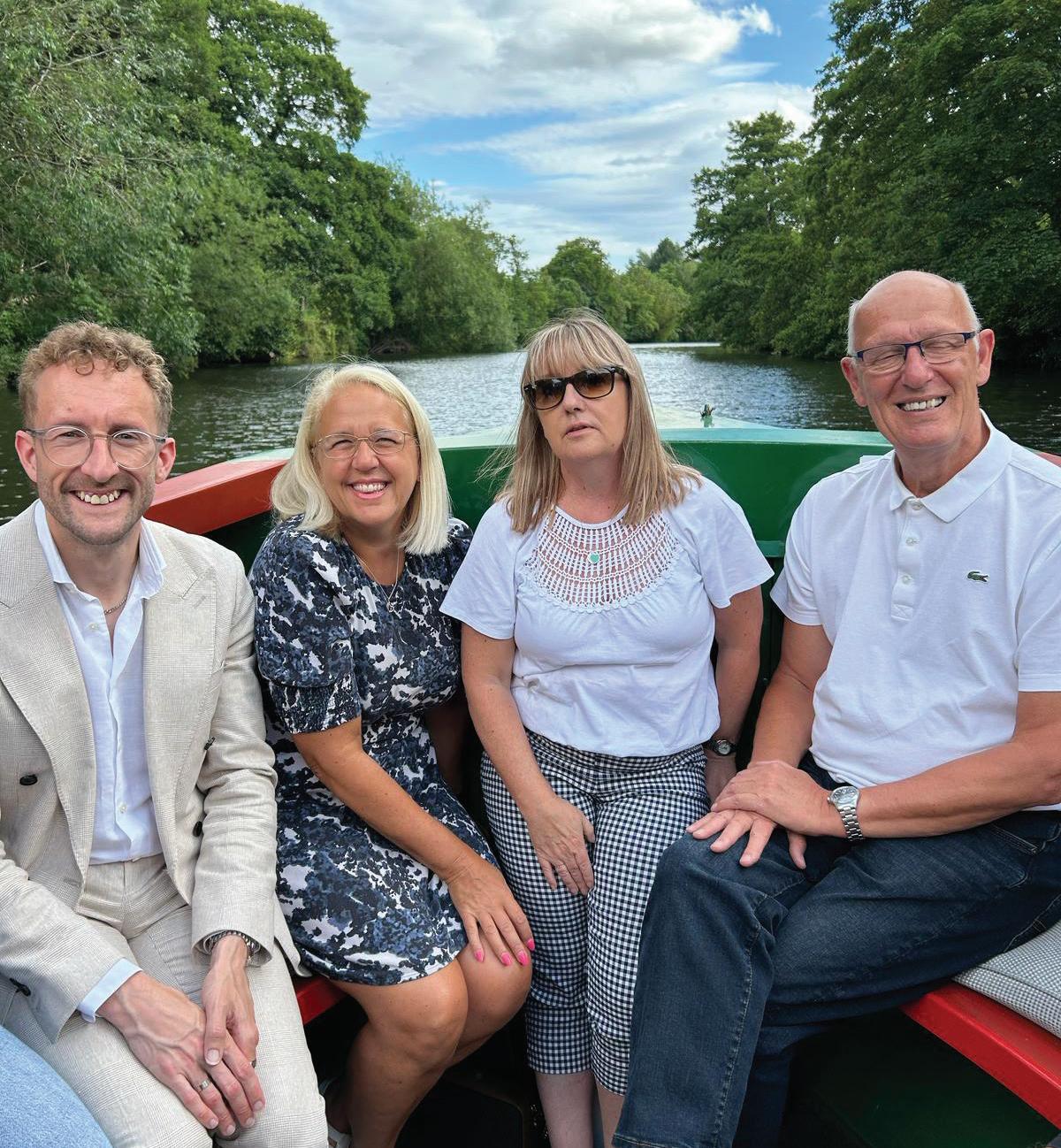
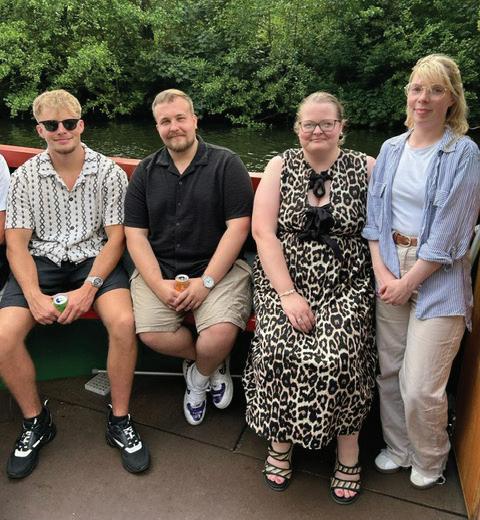
Our VP Rachel Maxwel l organised a cruise along the River Derwent on Friday 27th June. Thank you to Luke Wilkins and Charlie Gill from Review Solicitors for their support of this event and all the conveyancers came along - Joanne Jones , Michelle Pollard Sue Cunningham-Sawyer Chloe Summers Fiona Cox and Shaunie Brassington
It was an amazing reminder that there’s always time to pause, breathe, enjoy the journey and enjoy seeing the baby ducks!

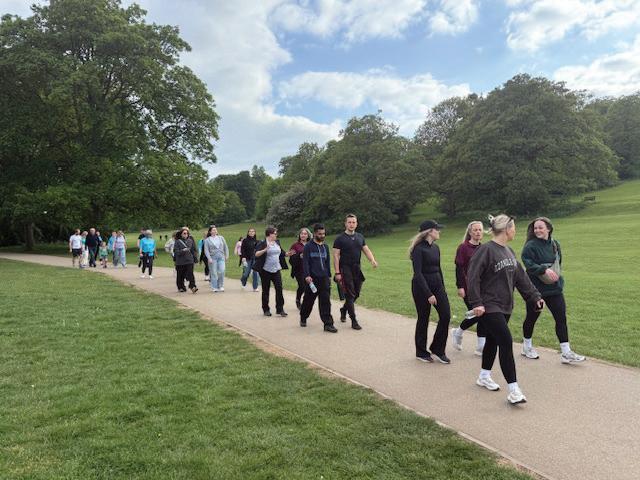
The Derby Legal Walk in aid of the Access to Justice Foundation took place on 15th May this year. We are very grateful to our fabulous Derby Junior Lawyers who organised the walk. In particular Liam Wicks and George Ottewell who made sure that the event was a huge success and planned a fabulous route.
We ended up with more than 50 lawyers and their friends and families taking part from Flint Bishop, Family Law Group, Smith Partnership, Rothera Bray, Geldards, Alexander & Co, and Elliot Mather. Huge thanks to DJ Davies who led the walk.
We rounded the evening off with a very welcome pint at the Flower Pot courtesy of DJL.
Thanks to everyone who donated - we raised almost £500.
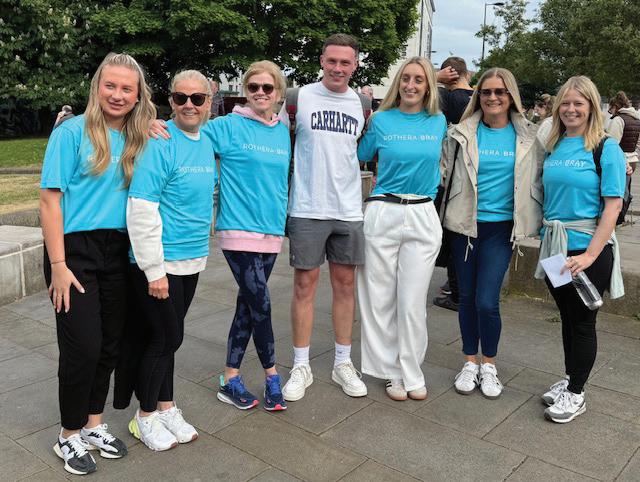


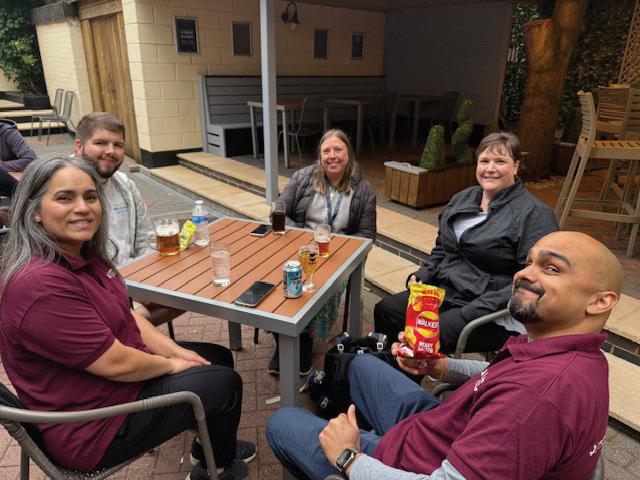
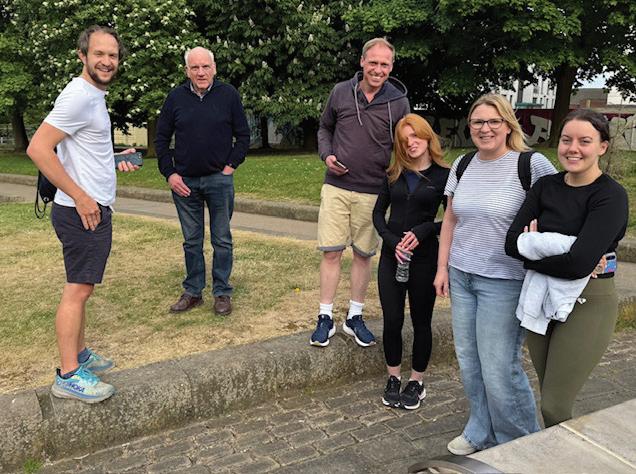


• 92% of professional advisers say that estate and tax planning will become even more important following the Inheritance Tax (IHT) changes announced in the 2024 Autumn Statement;
• 60% say they are already receiving more requests for advice;
• 65% say charitable tax incentives will become even more important to their client base; and
• 62% think more people will consider leaving a gift to charity.
Upcoming Inheritance Tax (IHT) changes are already beginning to influence the charitable Will-writing and estates market, with professional advisers reporting an increase in demand for estate planning advice and predicting a rise in charitable legacy giving, according to new research from Remember A Charity.
The changing IHT landscape In the Autumn Budget 2024, the Chancellor announced that IHT thresholds would remain frozen until 2030, with pension wealth no longer exempt from IHT from April 2027. As such, it’s estimated that the proportion of estates facing an IHT bill will almost double by 2030.
Remember A Charity’s Professional Adviser Tracking Study* – carried out by Savanta – reveals that 60% of professional advisers (solicitors, Will-writers and financial advisers) are reporting an increase in requests for advice about estate or inheritance planning since the IHT changes were announced. 9 in 10 advisers expect estate and tax planning to become more important under the IHT changes (92%), and that more people will need to consider how to mitigate the tax due (91%). Only 15% think there will be no discernible impact from the changes.
As more estates fall within the scope of IHT, two thirds of advisers believe that the charitable tax incentives will become an even more important consideration for their clients (65%), and that a greater number of people will consider leaving a gift to charity from their estate (62%). Charitable gifts are exempt from IHT and
estates that donate 10% or more of the net value can qualify for the reduced IHT rate of 36%.

Tanya Watson , Chartered Tax Adviser and Senior Director at Alvarez & Marsal Tax LLP, says:
“The changes to IHT are prompting a fundamental reassessment of estate planning strategies, particularly among clients who may not have previously been impacted. What we’re seeing is a growing need for tailored advice that balances financial objectives with personal values. Charitable giving can be a highly effective planning tool, and these changes provide a timely reason for advisers to revisit legacy plans with clients who may not have considered this route before.”

Eleanor Evans TEP , Partner, Trusts and Estates Administration at Hugh James, says:
“We’re already seeing an increase in clients seeking early advice on estate planning. Many people choose to leave legacies to benefit a cause they care about, and the tax breaks for gifts to charity provide an added incentive. As more estates will become liable for IHT once the changes take effect, charitable giving is becoming an increasingly important part of the estate planning conversation.”
Advisers communicating charitable giving more actively
When it comes to Will-writing, over two thirds (77%) of solicitors and Will-writers now say they always or sometimes proactively raise the charitable option with clients (up from 72% in 2023). Charitable gifts are becoming more prevalent over time, with an average of 21% of Wills written through a solicitor or Will-writer
now including a donation. This rises to 24% amongst those who always reference charitable legacies with clients and falls to 14% of those who never do.
Tax incentives are the most prevalent reason advisers give for raising the topic of legacy giving with clients. 92% of solicitors and Will-writers and 86% of financial advisers in the study say they always or sometimes advise their Will-writing clients of the charitable tax incentives.
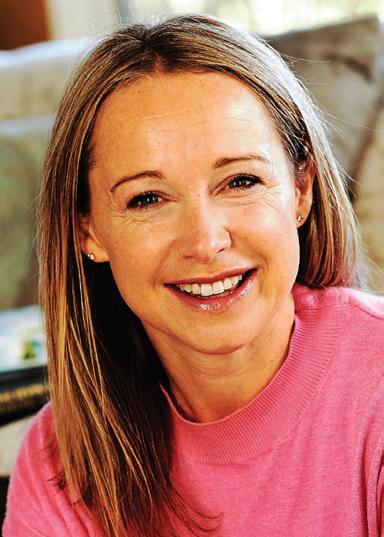
Lucinda Frostick , Directorof
Remember A Charity – the consortium of UK charities working to grow the legacy giving market, explains: “Across the advisory spectrum, we’re seeing more advisers referencing the option of charitable giving when talking to clients about their estate and inheritance planning. While the reasons for giving extend far beyond tax incentives, the fiscal framework forms a natural starting point and these IHT changes make the legacy conversation even more relevant to a wider group. This is helping to build understanding of legacy giving and to inspire more people to support the good causestheycareabout– alongside their loved ones – from their estate.”
Remember A Charity works with professional advisers, legal partners, regulators,tradebodiesand governmentto build awareness about legacy giving. Find out more at www.rememberacharity. org.uk/advisers
* A summary report of the findings is available here: https:/ www.rememberacharity.org.uk/ media/seflc0aj/savanta-summaryreport-2025-public-june-2025.pdf



The Charity Commission has published its annual public and trustee research, revealing a stark long-term rise in people seeking charitable support amid continued high levels of public trust in charities.
The Commission’s annual survey of public attitudes to charities reveals that in the last year 9% of people received food, medical or financial support from charitable organisations, compared to just 3% five years ago.
While demand for such services has risen dramatically, the Commission’s research shows that charities themselves are feeling increased financial pressure.
Over the same five-year period, the proportion of people who said they’d donated to, or raised funds for charity in the past year, fell from 62% to 48% as households have felt the pinch.
Nearly half of charity trustees said their charity had been forced to make changes as a result of cost-of-living pressures in the past year (46%). This included stopping some services (11%) and using more of their reserves than expected (17%).
Against the backdrop of these challenges, public trust in charities remains high, with almost 60% of people reporting high trust in charities – placing them second only to doctors among trusted institutions.
The research indicated that public confidence in charitable spending has improved, with over 6 in 10 people believing donations are reaching the intended cause. This confidence has risen by 7 percentage points in 12 months.
In other findings, the research suggested that charities’ campaigning activities are unlikely to diminish public support in their work – and for nearly half, may increase it. Fewer than 1 in 20 said they would be less likely to support a charity that campaigned, suggesting continued public support for charities that advocate for their beneficiaries.
In the Commission’s annual survey of trustees, also released today, there are signs of slight improvement in banking services, after the regulator and its partners highlighted persistent issues for many charities.
The research found that 38% of trustees reported problems with their charity’s bank, which is down from 42% in 2024, but remains an issue for many.
Charity Commission Chief Executive, David Holdsworth, said: “These findings highlight the central role of the charitable sector at a time of significant pressures in wider society
“Charities are providing a vital lifeline to ever more people, while simultaneously navigating their own financial challenges as donors feel the pinch.
“It’s encouraging to see improved public confidence in charitable spending, though there is no room for complacency. Charities must continue to keep their charitable purposes central to everything they do because this remains a key driver in maintaining public trust.
“The data paints both a challenging picture and a hopeful one – showing a sectorthat continues to be a bedrockof support and communityforpeople across the country as well as overseas, despite navigating unprecedented demand in an increasingly unstable global landscape.”
The full findings can be found on gov.uk
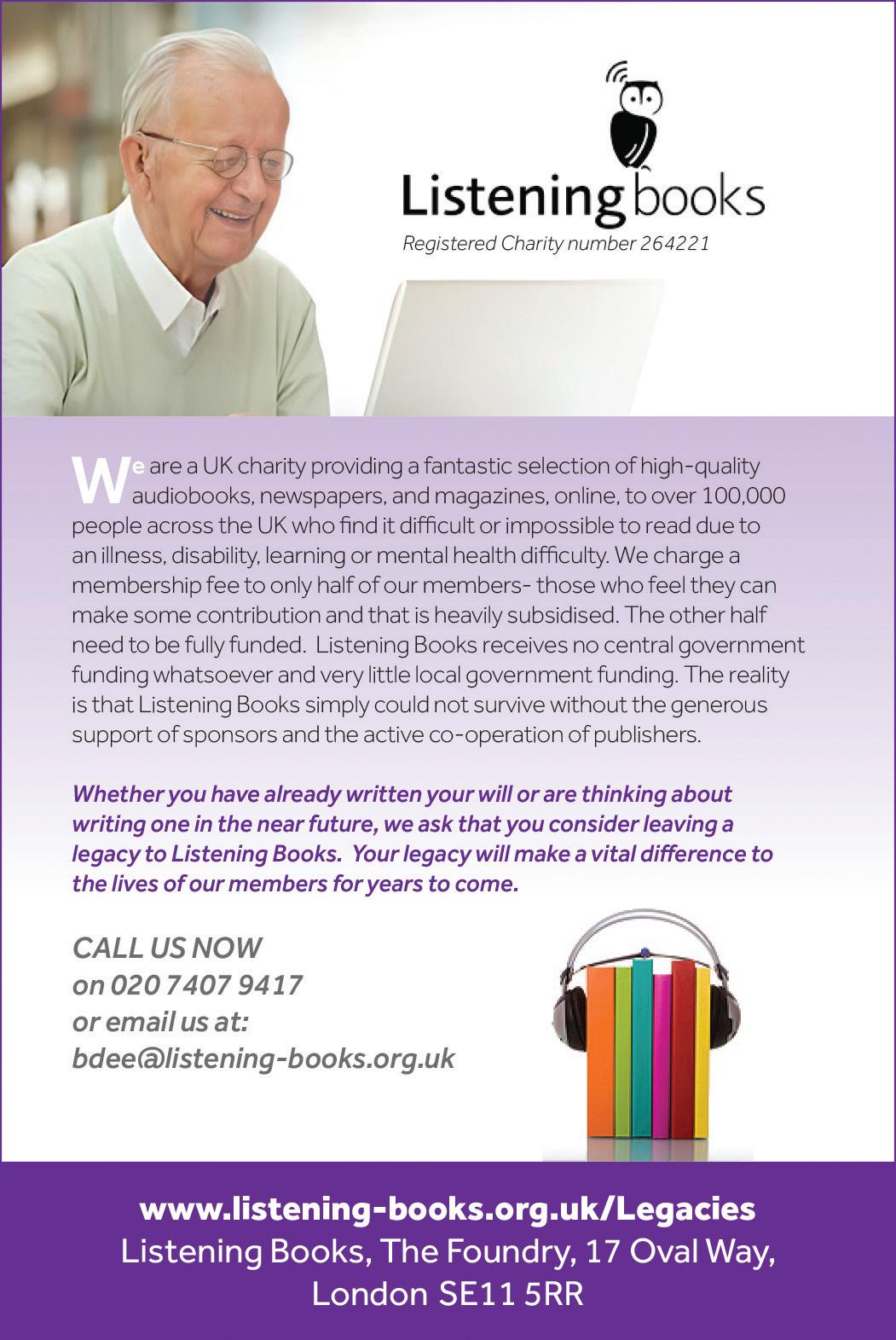

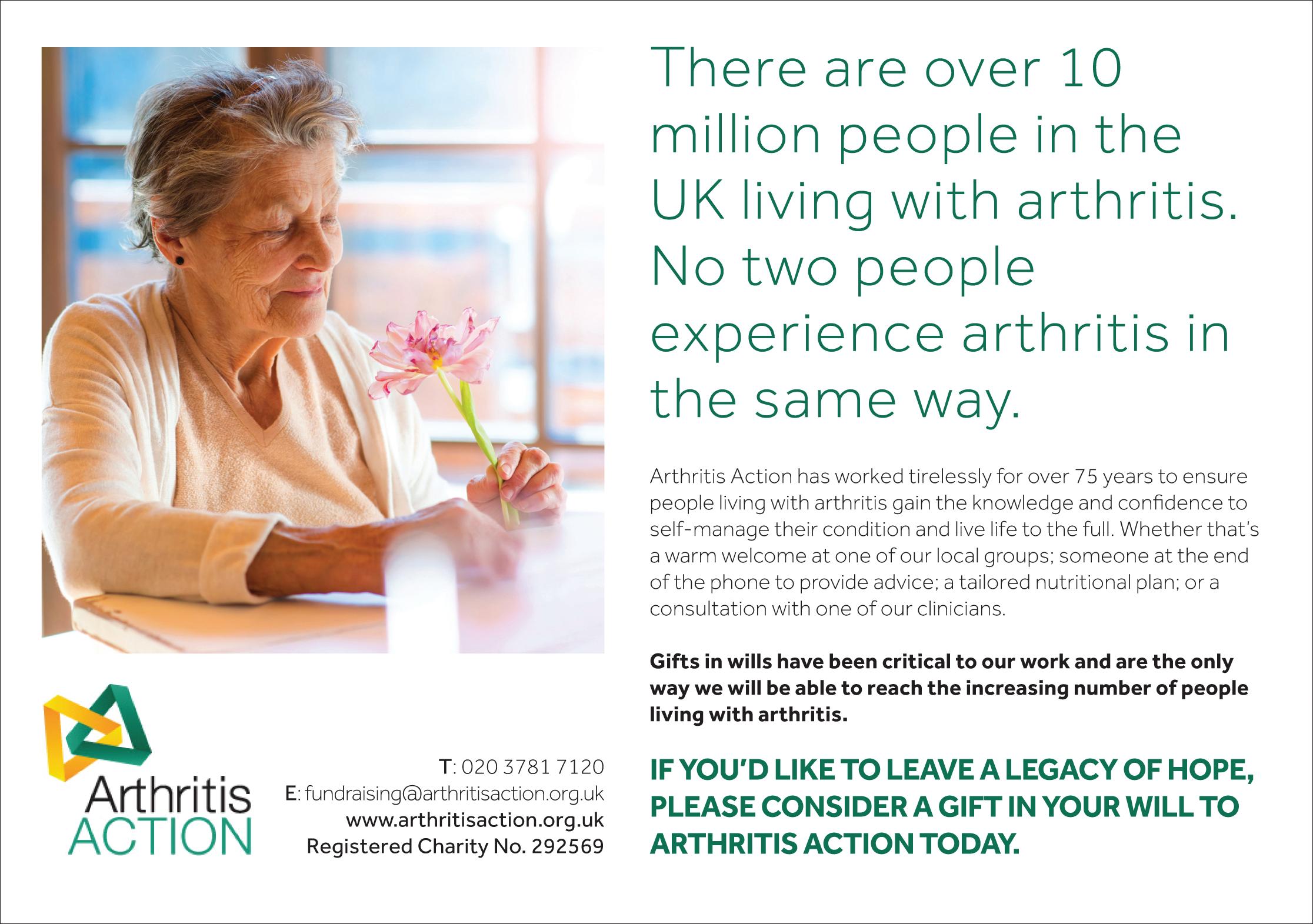
A review by Phillip Taylor MBE, Richmond Green Chambers
A legal highlight each year for those involved in expert evidence is to visit the EWI’s Online Conference It is well established as a virtual event working to update us on the work of experts with panel discussions including, this year, ADR. The Conference was again excellently chaired by Kitty St Aubyn with panel chairs.
The event was no different to previous occasions and highly informative! The webinar brings together expert witnesses, solicitors, barristers and eminent judges, including, this year, Lady Rose and Birss LJ. Discussions reviewed key issues facing our expert community, giving legal updates, and delivering “an enlightening day of insight, advice and discussion”. And all online, too, from the comfort of your home or office.
Lady Rose “How to be a witness as well as an expert”
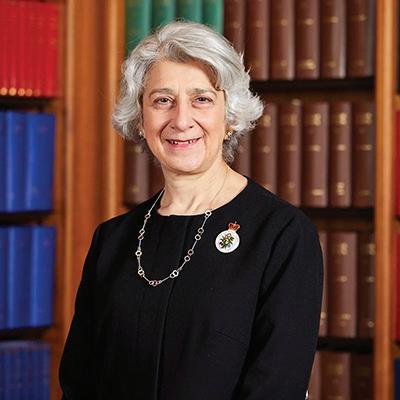
The day’s highlight was the leading keynote address from a Supreme Court Justice, Lady Rose of Colmworth. In her recorded address, Rose reflected on the vital role of the expert witnesses across all aspects of modern litigation and dispute resolution.
Drawing on memorable cases from her time in the Chancery Division and on the Competition Appeal Tribunal, Rose highlighted the powerful impact that expert evidence can have on the outcome of a case. She cited two trends shaping expert testimony involving the nature of an experts’ work for the future.
The first trend identified the growing importance of “collective actions”, where a representative brings a claim on behalf of many individuals. These are sometimes known as “class actions”, being “the presentation of individualised evidence from numerous claimants” which can often be impractical as sole proceedings. “Such cases”, Rose said, “increasingly rely on expert witnesses to provide an aggregate analysis”.
To avoid expert analyses duplication, Rose discussed use of ‘hot tubbing’ - always a favourite issue with the conference in recent years because of the imagery of the title! It’s a process where experts collaboratively present and discuss findings before the judge early in the process. It’s also an approach that does narrow the issues, promoting collaboration between experts, and it saves time.
The second trend covered the increased technical nature of expert evidence. “Such evidence is becoming more technical”, she said, observing that “it makes it harder to communicate clearly to barristers and judges, who must in turn explain the evidence in their judgments”
To help experts navigate these challenges, four points emerged:
1. Remember that your duty is to the court and not to the party instructing you. Rose stated that “it’s the judge’s trust and respect that ultimately will prove the most important factor in your evidence being accepted by the court.”
2. Be clear and precise. “Quantity does not guarantee the quality”, Rose explained. “Sometimes the sheer weight of analysis obscures the royal the real point of issue.”
3. Do not underestimate the tribunal’s expertise. Rose made this observation: “You may find that your most searching questions come not from opposing counsel, but from the bench.” Too true!
4. Judges don’t want to trip you up or catch you out. Rose explained here that “We want you to help us understand what for many will be on familiar territory, and if you do that with honesty and clarity, you will find yourselves indispensable to the process.”
Lord Justice Birss “Expert witnesses: vital participants in civil justice”

Colin Birss is a judge of the Court of Appeal, Deputy Head of Civil Justice, and an advisory editor to “Civil Procedure: The White Book 2025”. A self-confessed “computer wonk”, Birss offered a most useful picture of current issues in civil justice as the most experienced judge in both IP and IT matters today. We were very lucky to hear from him.
Conference aims for 2025 were to assist new experts looking to develop their understanding of key issues; experienced experts looking to develop their practice; and those who work with or instruct experts, so there was much variety again this year.
Expert witnesses come under continual scrutiny in the courts, so the conference provided essential insight and practical advice to help experts further develop their knowledge and skills, obtain instructions, and win repeat business.
Hearing from the senior judiciary, solicitors, and experienced experts, participants could reflect on important legal updates and ethical issues when considering what instructing parties are looking for. As usual, latest case law decisions introduced by Sean Mosby were particularly helpful.
There was a useful participation in a range of practical interactive sessions and discussions which are easy to use once one gets the hang of it in the virtual environment. For those who missed any sessions, recordings from the Conference are available, so thank you again, EWI, for a most successful virtual day. See you next year.

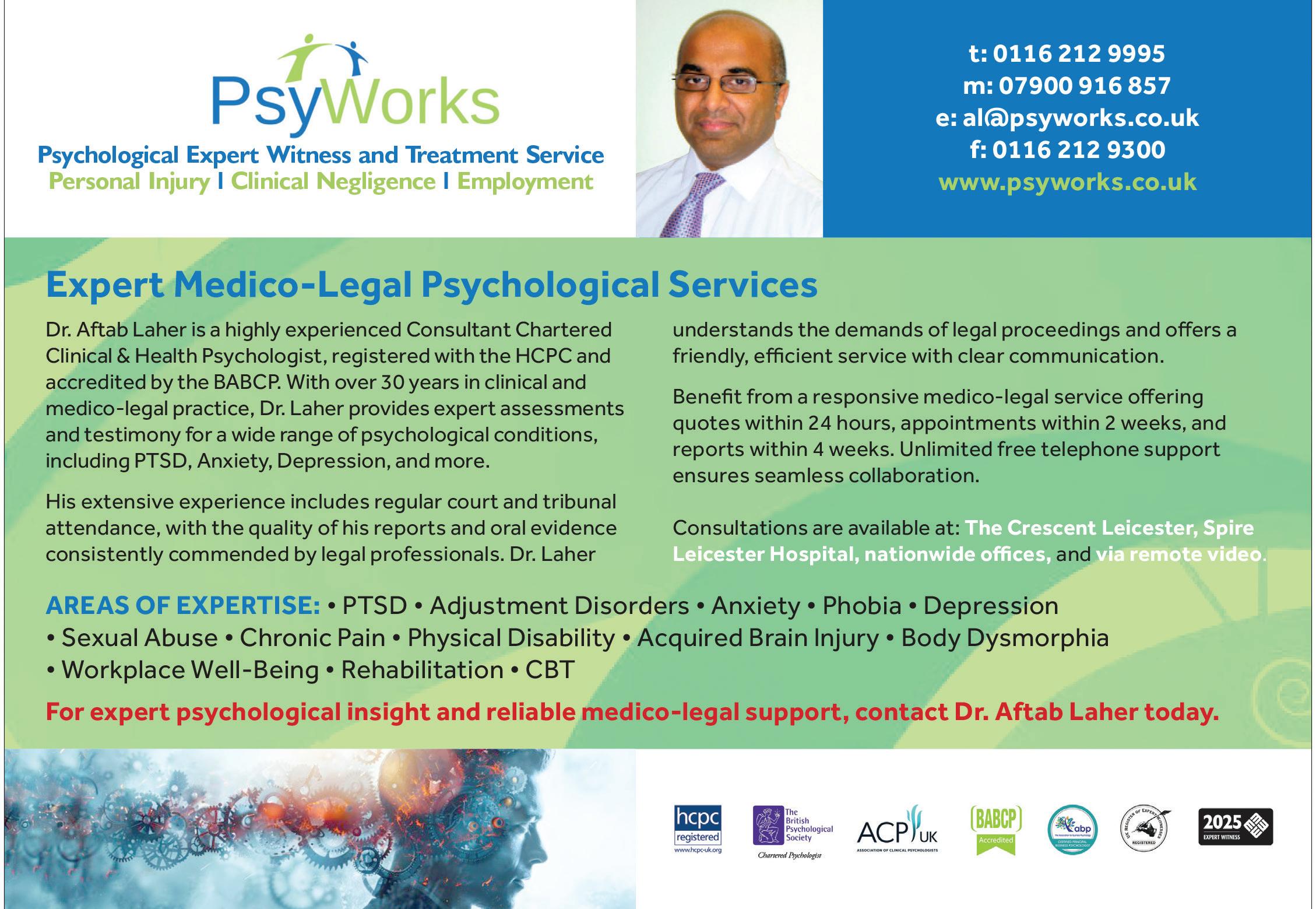
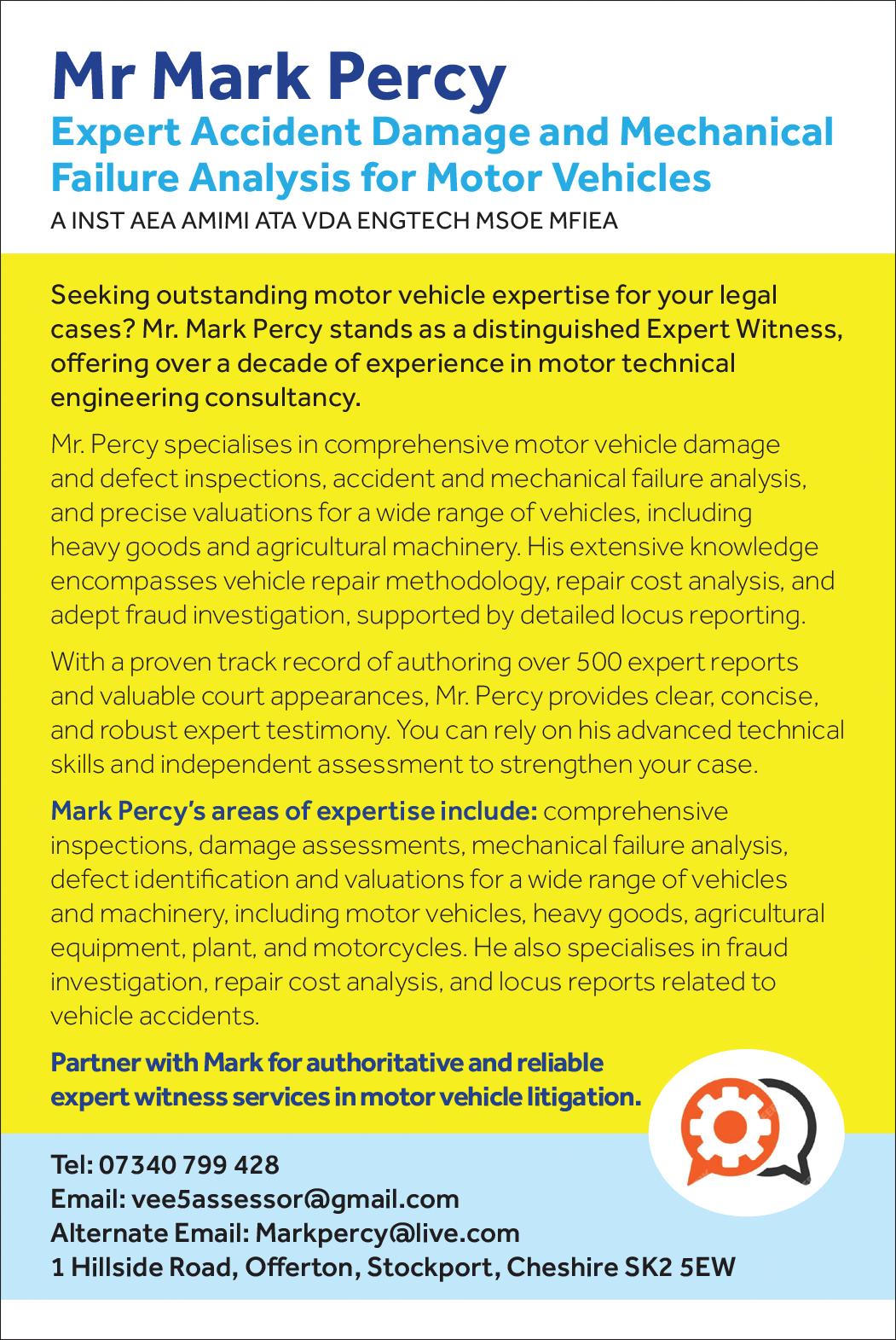
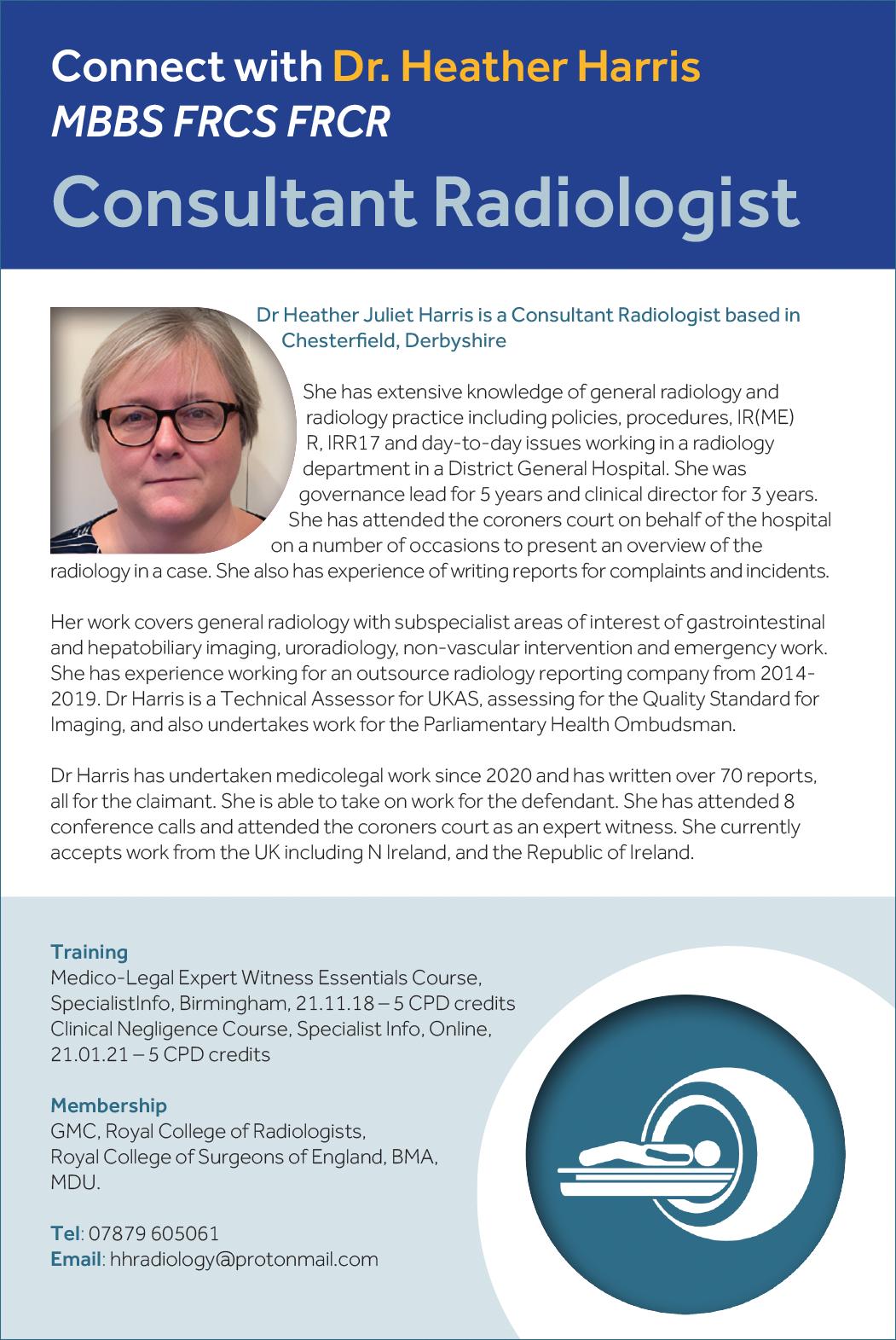

You may have seen my article last December, and many similar from other mediators, with the title “Have the Floodgates Finally Opened?” We rejoiced at the case of Churchill -v- Merthyr Tydfil County Borough Council [2023] EWCA Civ 1416 where, at long last, the Court of Appeal overturned Halsey -v- Milton Keynes General NHS Trust [2004] EWCA Civ 576 where Dyson LJ had said this:
“…to oblige truly unwilling parties to refer their disputes to mediation would be to impose an unacceptable obstruction to their right of access to the court” and that this would offend Article 6 of the European Convention on Human Rights, which establishes the right to a fair trial.
Well, now there isn’t an obstruction. Sir Geoffrey Vos , Master of the Rolls, decided that a judge can now insist that the parties go to mediation before being allowed a hearing. So all those years where judges imposed costs orders, made pointed remarks from the bench, kept parties waiting for many months, are over. Yippee! Parties can be helped by a friendly mediator, promptly and at modest cost, and have their own solution to their dispute. Wonderful!
Yet the bad news continues. We recently read of an elderly lady called Christel Naish , in dispute with married doctors next door, over a tap and a pipe which hung a couple of inches – a couple of inches – over the adjoining property. Legal costs to date? £280,000. And there’s to be an appeal. What a waste!
But I have lots of examples where I have mediated boundary disputes, where at least the parties had the good sense to mediate, yet if settlement isn’t achieved they can spend good money on legal fees. Let me tell you about one of them.
Along a street in a local town was a row of between-the-wars semidetached houses. Two such shared an unmade drive. On one side, the householder smartened up his house with a kitchen extension which went right up to what may have been the border, and he finished the job by laying paviours right up to where he thought was his share of the joint drive. And we can’t rely on a Land Registry plan to decide the exact position of the border; if we scale up the red line on the plan it will be about three feet wide!
So Makin goes along as mediator, has a good chat with everyone (in their separate homes; no fraternising!) and, bit by bit, we make progress and there is agreement on where the boundary is. Better still, paviours man agrees to pull back a row of paviours which encroached on what was now next door’s property. All good news.
We even reached agreement where next door allowed paviour man to go onto their side of the border to fix the gutters on the
kitchen extension; that hadn’t been possible because the chap next door had not allowed access.
Then we came to the sticking point. When the shared drive had been undeveloped, next door had erected a gatepost so that he could close off his back garden. The trouble was that, now we had defined and agreed the border, that gatepost was on paviour man’s property. And would this chap agree to move his gatepost now that it didn’t serve any purpose? We agreed to meet another day, and lawyers attended, but gatepost man would not budge.
I asked both lawyers for their estimate of future legal costs if the case went to court, and they both said £100,000. So, on top of what had already been spent, the losing party at trial would have to pay their own costs of £100,000 and then, allowing for say 30% “taxed off”, another £70,000. Madness! And what was worse, £170,000 was more than the equity either party had in their own home; in fact, even ignoring mortgages, the houses were not worth much more.
So after two days of negotiation, the first day very satisfying, we were left with the parties going to court, and the loser probably having to sell their home.
That isn’t far from where we came in with Christel Naish
So is there a floodgate of mediations keeping people like me busy? Well, I haven’t seen much difference yet. Fortunately, mediation isn’t my day job, though I will always drop everything for a mediation because it’s so satisfying. But my main job is as a forensic accountant and expert witness, and in that I am truly bursting with work. That’s on a vast range of cases; everybody wants to go to court. Why? I make a very good living as a forensic accountant, but I would much rather work less hard, for far less money, helping people settle their own disputes through mediation.
When, oh when, will those floodgates finally open?
Biog: Chris Makin has practised as a forensic accountant and expert witness for 30 years, latterly as Head of Litigation Support at a national firm. He has given expert evidence about 100 times. He also performs expert determinations.
Chris is a fellow of the Institute of Chartered Accountants where he has served on the Forensic Committee, and as an ethical counsellor; he is a fellow of the Chartered Management Institute, a fellow of the Academy of Experts where he serves on the Investigations Committee, and a mediator accredited by the Chartered Arbitrators. He practises as a mediator, from his home in West Yorkshire and his rooms at 3 Gray’s Inn Square, London WC1R 5AH, telephone 020 7430 0333. He has mediated 100+ cases so far, on a huge range of subjects, with a settlement rate to date of 80%. For more see his website with videos:
www.chrismakin.co.uk chris@chrismakin.co.uk
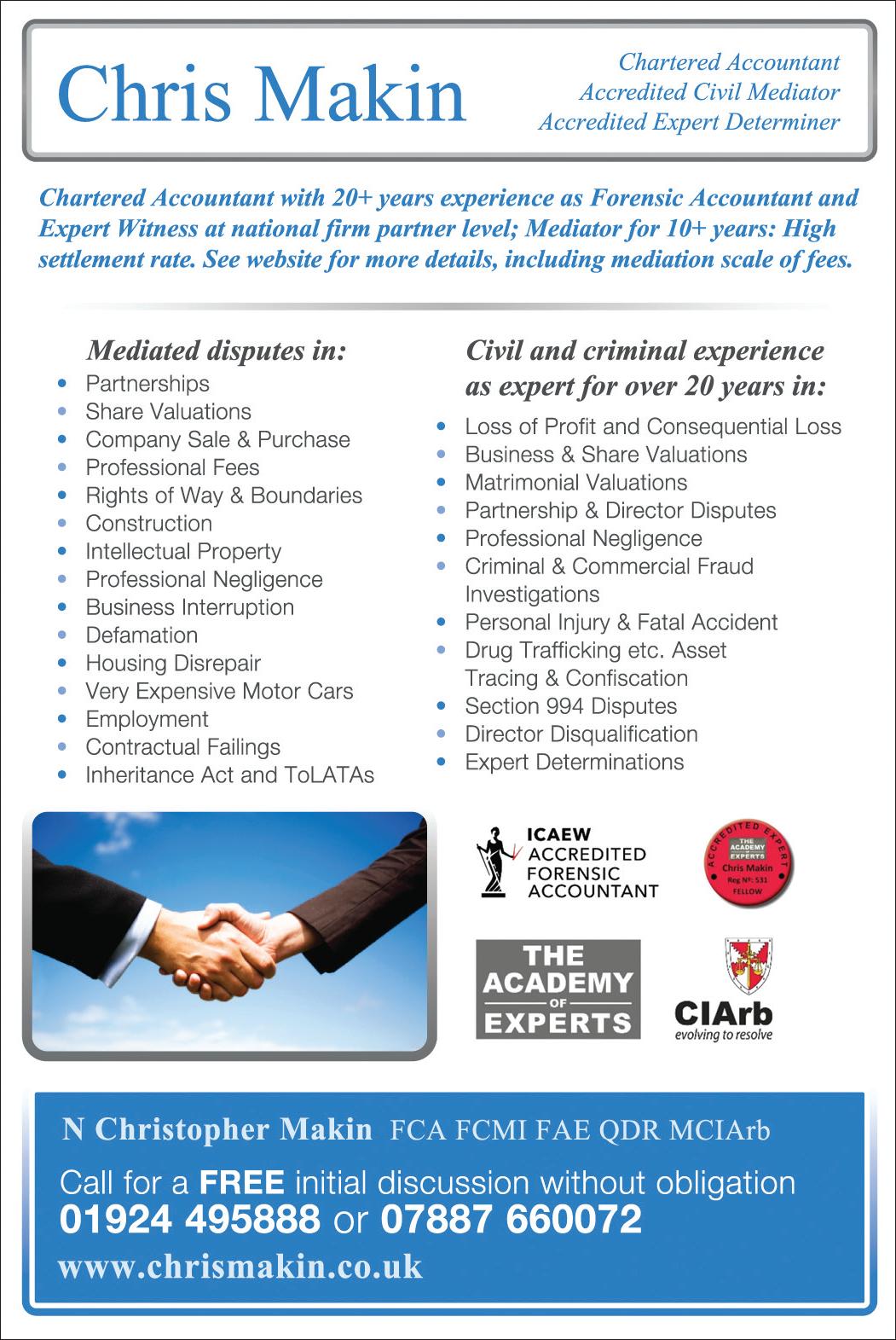
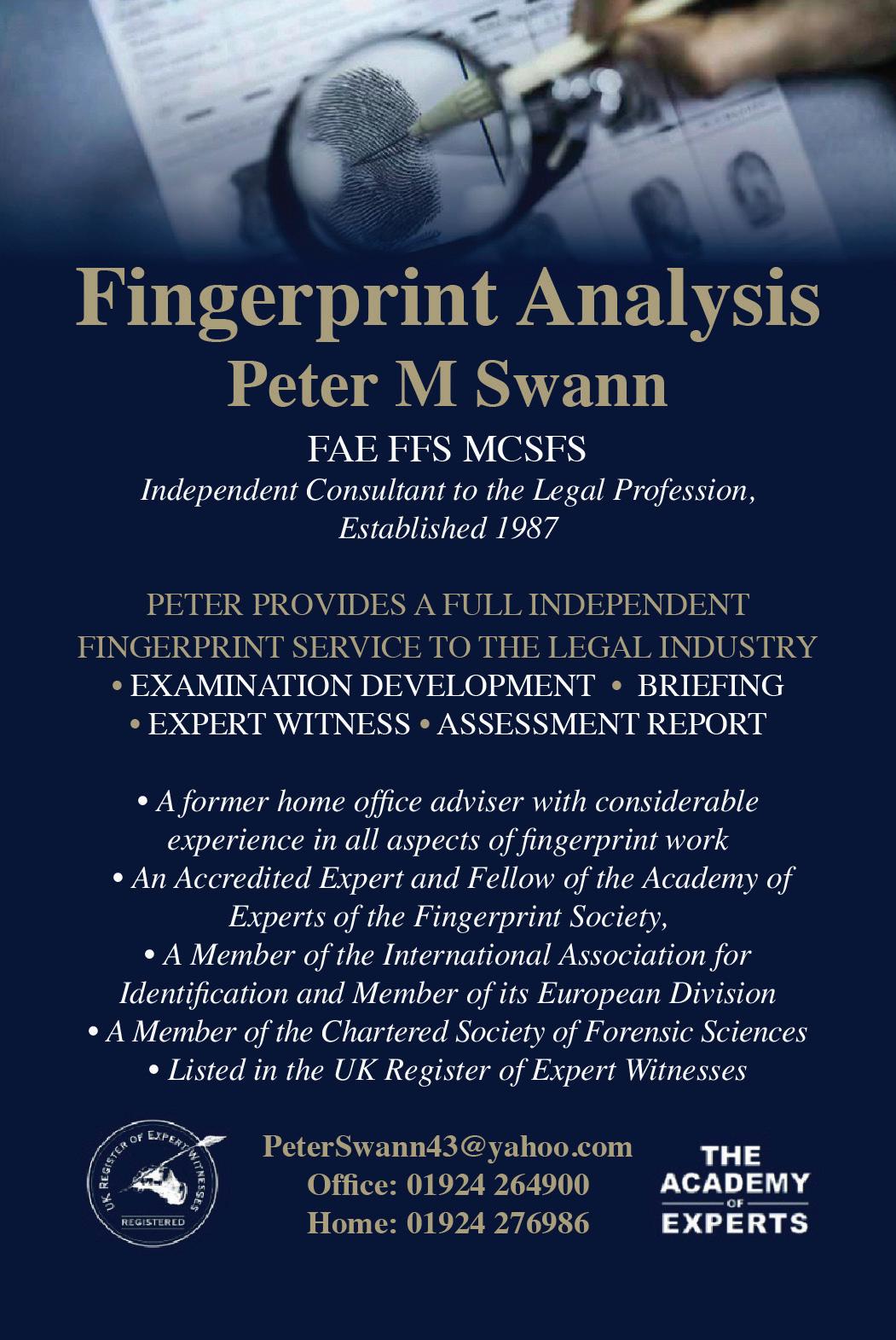

Email: bill.bailey1@nhs.net
Appreciations by Elizabeth Robson Taylor MA of Richmond Green Chambers and Phillip TaylorMBE,HeadofChambers,ReviewsEditor, “TheBarrister”,andMediator
Arbitration And Mediation In NineteenthCenturyEngland
By Francis Calvert Boorman and Rhiannon Markless
ISBN 9781919631844
HOLOBOOKS/ THEARBITRATIONPRESS
www.holobooks.co.uk
The Last In The Series Of Great Arbitration Series Of Books From Holo And From Derek Roebuck
We owe a debt to the late Derek Roebuck for his excellent series of books on the history of mediation in England, finishing off with this work entitled ‘Arbitration and Mediation in Nineteenth-Century England’ published by HoloBooksandtheArbitrationPress.
This new title has been written by his collaborators on the previous volume, ‘English Arbitration and Mediation in the Long Eighteenth Century’, by Francis Calvert Boorman and Rhiannon Markless.Itisagreat final tribute.
Modern lawyers realise that arbitration remained a vital institution in nineteenthcentury England. The book investigates how the settlement of disputes changed from the end of the Napoleonic Wars to the Arbitration Act 1889. It was a time in legal history of substantial upheaval “in the demographics, society and economy of England” which has, of course,repeateditselfsince.
There was a booming population in Victorian times unlike today, linked together with emerging urbanisation and the growth of factory production. The Victorians created newly enriched industrialists from the wealth they generated, which also produced a burgeoning working class with squalid urban conditionswhichhasbeenwelldocumented
As the writers observe, the growth in new technologiesandindustriessuchastherailways expanded for everyone. The introduction of massive change from what we now call the ‘Industrial Revolution’ with flourishing new business organisations and opportunities led to change. Along with production and international trade growth in England, came its imperial ambitions and social unrest… and disputes!
And these changes led to new forms of
“dispute” to go with the age-old differences over land and debts, and within the family. The authors explain how arbitration continued to be used and was adapted to suit novel and diverse challenges in the nineteenth century. This included an overloaded legal system which needed modernisation (as today), the rise of anonymous credit transactions and an increasingly organised labour movement. So, nothing much has changed!
The relationship of arbitration to the legal profession and the commercial community is well explored, with their different positions on the visions of how arbitration should be structured and regulated as an emerging alternative dispute resolution process.
The expanding use of arbitration as a tool of governance is usefully examined, with the increasing use of statute based law for both national and local issues.
We liked Francis and Rhiannon’s description of the international perspective, viewing arbitration as a separate process to bring peace between nations on the international stage, and also used in various aspects of the slave trade as attempts to end it increased.
For those reading the book, the elucidation of “the varied experiences of both parties, from aristocratic mine-owners to widowed businesswomen, and arbitrators” is most usefully explained.
This final work is a worthy tribute to the lasting impact of Derek Roebuck’s scholarship on this important and yet often ignored or sidelined area of the legal process. We own enormous gratitude to Derek and to his widow Susanna Hoe for his enduring works. Thank you.
The date of publication of the hardback edition is cited as June 2024.
Legal Aid Handbook 2024/25
The 2024 Standard Civil Contract and The 2025 Standard Crime Contract
Edited by: Vicky Ling, Sue James and Simon Mullings
ISBN: 978-1-913648-68-8
Legal Action Group
Supported by The Law Society www.lag.org.uk
Confused By The Complexities Of Legal Aid?
This Is The Only Comprehensive Guide To The Legal Aid Scheme -- Now In Its New Annual Edition For 2025
“Without legal aid, there is no access to justice.” In their terse and to the point introduction to this latest edition of the celebrated ‘Legal Aid Handbook’ (published annually), editors Vicky Ling, Sue James and Simon Mullings have certainly set out to remind everyone involved in the justice system of this painfully obvious and uncomfortable truth for the 2020s.
Legal aid and advice, as they rightly insist, is a public service, critical, indeed, to ensure the fairness of the justice system. One might add, in tandem with the editors, that legal aid is chronically and consistently underfunded, while at the same time, its complexity increases. All the more reason why dedicated practitioners in this challenging and vital area of law should acquire this latest edition of the ‘Legal Aid Handbook 2024/25’ published annually by the Legal Action Group (LAG).
The statement has been made -- and who could disagree -- that all busy practitioners involved with legal aid cases should have a copy of this Handbook permanently on their desks -- and so many do. Always have the most recent edition because the rules do change quite often. As the publishers point out, this is ‘the only comprehensive guide to the legal aid scheme.’ Within almost 800 pages the handbook provides all pertinent and specific advice on the conduct of cases, as well as advocacy and the practicalities if financial and contract management, plus advice on getting paid.
As the subtitle indicates, this new and updated edition provides advice on ‘The Standard Civil Contract 2024’ and ‘The Standard Crime Contract 2025’ -- and there’s a new chapter on “what you need to know at a glance” which we found most helpful. Other new sections of the text include key resources and key points to note.
As a work of reference, including key chapters written by a total of thirteen expert contributors, including the editors -- this is a handbook that is more than useful, as it includes tables of cases, statutes, statutory instruments -- and a table of EU and international legislation. Straightforward to navigate, it also provides a list of abbreviations (very useful, that), a glossary, an index of seventy-five pages -- plus five appendices, which include advice on what you can claim for in civil, as well as criminal costs.
For all practitioners who handle legal aid cases, this newly published up to date and information-rich handbook should be regarded as an absolutely essential purchase.
The date of publication is cited as November 2024.
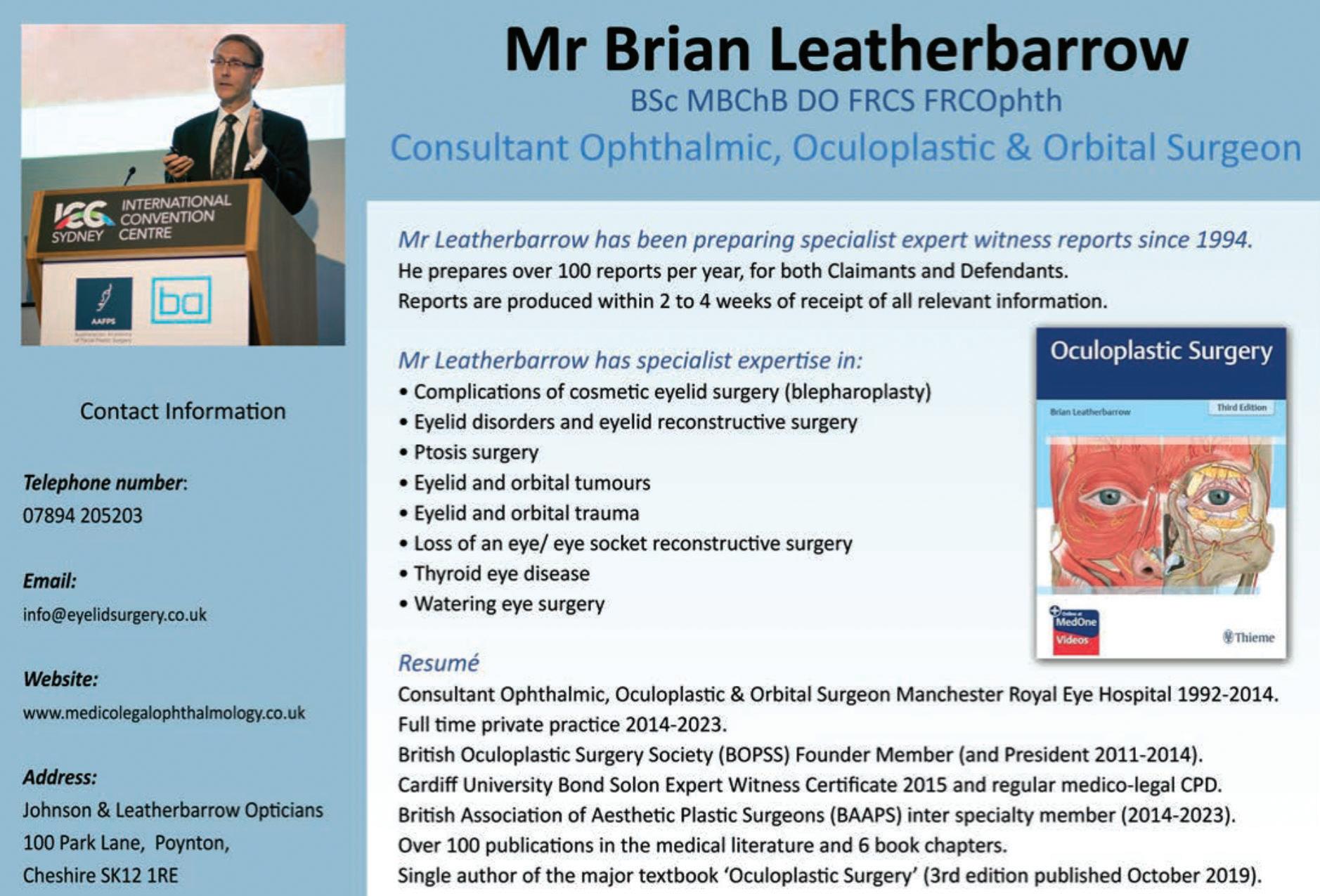

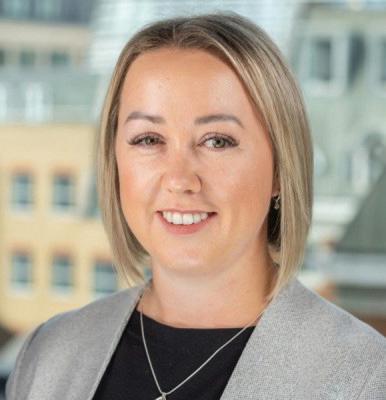
Recently, the solicitors’ professional indemnity market has seen an increase in the number of insurers offering firms primary insurance. With more choice available, how should firms best present their risk — and why should they choose HDI?
At HDI, how do we assess you as a firm?
As your insurer, we are there for you when the worst happens. However, insurance is just one tool in your armoury against risk. We look for firms that invest in a clear and robust risk management strategy. We want to hear about how you identify and manage risk in your firm. This can include how you structure your firm, risk management planning, business continuity plans, file review and supervision policies, and external audits.
When reviewing a firm’s proposal form, I like to pay particular attention to the answers that provide insight into the workings and values of your firm. Your submission can be really enhanced, for example, by sharing your firm’s history, any particular specialisms, your future goals, the type of work you like to do and the type of work that you would turn away. These details allow me to take a more holistic view of your firm.
Getting your submission in early and in full order is vital. Work with your broker to ensure you have up-to-date claims
summaries. It is also very helpful to include a narrative around any open and closed claims — for example, what the allegation was and what lessons were learned. The fact that you may have experienced a claim is not necessarily an issue — at HDI, we recognise that there is often a story behind every claim, and we are open-minded and willing to listen.
What are the key concerns for Insurers currently?
Whilst the frequency of claims appears stable, the severity of claims has notably increased in recent years. Contributing factors include rising asset values, more complex transactions and defence cost inflation. Worryingly, the market has begun to see more claims exceeding the compulsory primary limit. Firms should have heightened risk management measures in place when taking on matters of high value, or when acting for clients of considerable net worth.
Conveyancing remains the main source of claims, both in frequency and overall cost. Conveyancing firms continue to be prime targets for property fraud. Being aware of key red flags and undertaking rigorous due diligence is vital to protect your firm from such claims.
Additionally, there has been a notable rise in claims from wills, trust and probate work. The drivers for this are a combination of more complex family structures, increases in overall estate values and the challenges that can arise with people living longer. Our advice is that this would be a good time to conduct a review of policies and procedures and implement targeted refresher training for staff.
Beyond this, insurers will be taking into account the economic environment, technological development and other similar contextual factors as drivers for claims, such as the impact of AI, and the continued cyber threat we all face. Sharing your firm’s policies and risk management
strategy for these areas helps provide insurers with reassurance that your firm is well equipped to navigate such challenges.
In the past, we have seen volatility created by insurers entering and exiting the solicitors’ professional indemnity market. At HDI, we have the experience, strength and stability to support you now and into the future. Our recent credit rating upgrade by international rating agency S&P Global Ratings to AA- (Very Strong) is a testament to our financial resilience, enabling us to be your trusted insurance partner.
We look to provide law firms with a highquality, long-term solution. That’s why many of the practices we cover have been with us for the 15+ years as we have been a primary insurer for law firms. We use our specialist experience to ensure that we are the experts for your needs today – and help prepare you for what might happen tomorrow.
If you are a firm with a turnover of under £20 million and would like to obtain a quotation from HDI, please contact Lockton Insurance Brokers.
By Sarah White, Underwriting Manager, HDI Global SE.


Sir Brian Leveson has today (9 July) published the first report of his Independent Review of the Criminal Courts.
The Law Society of England and Wales is calling for sustained investment across the criminal justice system in order for reforms to succeed.

“This root and branch review shines a light on how decades of neglect of the criminal justice system mean this vital service is failing the public. Justice delayed is justice denied,” said Law Society president Richard Atkinson
“The report clearly demonstrates the entire system needs funding and how the recommendations outlined are an opportunity to prevent full system collapse and in the longer term bring the justice system back onto a
sustainable footing.
“The proposed new division of the Crown Court on its own will not solve the Crown Court backlog. The government would have undermined our historic jury system for no effect. Only investment in the whole system has any chance of success – from when a criminal prosecution starts in the police station, and at all stages before a Crown Court case.
“Without sustained long-term investment in the system dealing with both demand on the courts and the capacity of the courts, the government will simply be shifting the Crown Court backlog to the magistrates’ court backlog and creating another backlog in the new division.
“We are pleased that Sir Brian recognises the central role of solicitors in providing vital, early legal advice so the right cases are diverted away from courts, leaving capacity to deal with more
serious offences. But this will need additional investment in legal aid on top of the recent uplift, given decades of underfunding.
“The recommended measures must be kept under review with thorough data collection to show that radical reform, including the loss of jury trials, is working and worth it, and that public trust in the system is not diminished. If the government cherry-picks the recommendations, they will be denying justice to our communities.
“Public confidence in the rule of law is strengthened by a functioning criminal justice system which can deliver swift justice for all.”



